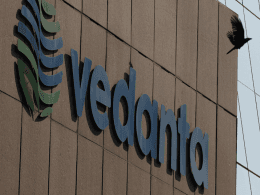The case involving Pantheon Infrastructure Pvt Ltd, which was set up as a 50:50 joint venture to develop a commercial property on Park Davis’ land parcel in Mumbai, has taken a new turn. Going against the previous orders of Company Law Board and Bombay High Court, the apex court has allowed the complainant to be invited to join the board of the joint venture.
Canadian businessman Alnoor H Jamal, based out of Africa, through his fully owned Akkadian Housing Infrastructural Pvt Ltd, entered into a 50:50 JV partnership with Mumbai-based Shobhit Rajan to float Pantheon Infrastructure for developing a commercial property.
In March 2001, Pantheon Infrastructure completed acquisition of a 13-acre land parcel from Parke Davis in Saki Naka in Mumbai with funds arranged through banks and financial institutions. It then proceeded to develop the three phases of the project called Raiaskaran Tech Park (Logitech Park).
The problems started to crop up over the next couple of years. Rajan allegedly coaxed Jamal to dilute his equity share from time to time on the pretext of bringing in independent persons to develop the property. The businessman has alleged that his share was illegally diluted to 28.33 per cent from 50 per cent and he was unceremoniously thrown out of the Pantheon board in 2004 as he complained of several acts of financial mismanagement.
Jamal challenged this in Company Law Board and then in Bombay High Court. Both ruled in the favour of Rajan. The CLB in its final judgment dated January 8, 2009 returned its own findings on oppression and mismanagement and granted a ‘no fault’ relief. CLB also ordered a compensation of 4.35 per cent of the profits arising out of the value of the land, and not the developed property, as a “just and reasonable return on the investment” for Jamal.
The CLB later increased the compensation to 6.6 per cent of the profit on land value on account of the fact that the petition was pending for three years.
This was challenged in Bombay High Court. However, it dismissed his petition and affirmed the ‘no fault’ relief granted by the CLB.
Now, the petitioners have filed a special leave petition (SLP) in the Supreme Court against Rajan and 14 others.
The SLP said the High Court Judgment is antithetical to the laws settled by the Supreme Court and is incompatible with the existing corporate law jurisprudence. “The perpetuation of the Impugned Judgment would have far reaching consequences as it alters certain inviolable principles of corporate law and also the fundamental rights relating to ownership of property and law relating to its deprivation,” it said.
The top court has accepted the SLP and its three-judge bench of Justice Anil R Dave, Justice Shiva Kirti Singh and Justice Adarsh Kumar Goel has allowed Jamal to be invited to the board of Pantheon.
Senior advocates Gopal Subramaniam and Abhishek Manu Singhvi appeared along with Sajid Mohamed and Aman Vachher for Jamal.
Court room battles arising between partners in real estate has become a common phenomenon. Recently, a bunch of investors of Mumbai-based Mantri Realty dragged promoter Sunil Mantri to court alleging fraud and cheating.
The Bombay High Court on Wednesday asked an official liquidator to seize all the assets, books and records of the company and directed Mantri and three other directors to not leave the country. The court also asked the company to not sell any of its assets or create any third party right on it.
Mantri is now reportedly trying to reach at an out of the court settlement.
In a case that reflects the sad state of affairs in the sector, two homebuyers in a Noida project of Unitech dragged the promoters to court on not getting possession of their apartments. Ramesh Chandra and two managing directors were sent to a 14-day judicial custody in alleged cheating. They received bail after spending a night behind the bar.
Global private equity funds and investment firms have also taken the route to get out of disputed cases. Gurgaon-based developer BPTP Ltd had to buy back the stake held by JP Morgan and Apollo Global in the company for Rs 693 crore ($105 million) following a long-drawn arbitration battle.






